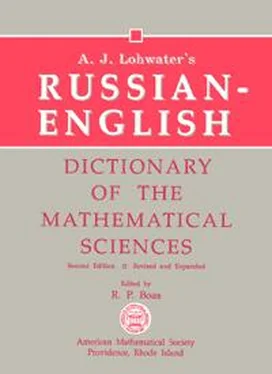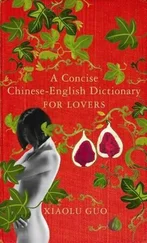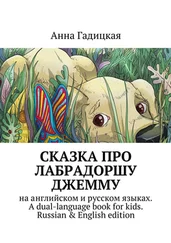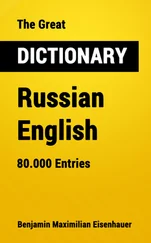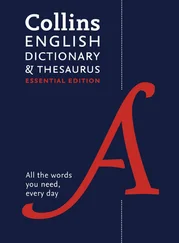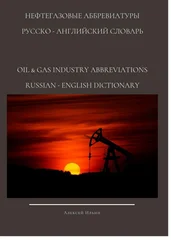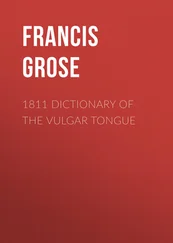сложнее всех → (the) most complex one (of all)
| C. Formation of Adjectives from Proper Names |
Adjectives may be formed from proper names by adding the following suffixes: -овский, -овый, or -овой. For instance, the adjective corresponding to the name Эйнштейнis either Эйнштейновскийor Эйнштейновый(Einsteinian). However, as adjectives these words may also appear in a short form; the adjective Евклидовый(Euclidean) may be rendered as Евклидов. Such adjectives are usually listed in the dictionary in the more modern short form. Unlike other short-form adjectives, this type does decline and is used nonpredicatively. The declension is given in the Appendix.
Footnotes
| 1. |
Notice the absence of the verb "to be" in the present tense. In the past and the future tenses of the verb "to be," the long-form predicate adjective may appear in either the instrumental or the nominative case: лекция были интересной, лекция была интересна. ↑ |
| 2. |
As in the nominal case endings, a masculine short-form adjective which apparently ends in a consonant, such as нов, actually expresses the vocalic zero-ending ( -Ш). ↑ |
| 3. |
Note that in the masculine adjective declension, those adjectives which have stress on the stem have the ending -ыйin the nominative singular, while those which have ending stress have the ending -ой. ↑ |
| 4. |
Note the consonant changes in the stem; this is consistent with the following common consonant alternations: г, д — ж; x — ш; ст — щ; т, к — ч. ↑ |
The various pronouns in Russian, like the nouns and adjectives, are declined. The use of each type of pronoun is described below, while complete paradigms of the pronouns are found in the Appendix.
The Russian personal pronouns correspond to the English "I," "you," "he," "she," "it," etc. However, unlike English, and like French, Russian expresses the difference between the "formal you" and the "informal you." That is, the second-person singular form тыis used in familiar circumstances, while вы, the second-person plural form is used in more polite and formal address. (However, the informal style is uncommon in mathematical writing.) Выis also used to express plurality when more than one person is addressed in conversation.
1. The following table lists the personal pronouns in the nominative case.
|
|
Singular |
|
Plural |
| 1st person |
|
я (I) |
|
мы (we) |
| 2nd person |
|
ты (you) |
|
вы (you) |
| 3rd person |
|
он (he, it) она (she, it) оно (it) |
|
они (they) |
|
|
|
|
|
|
|
|
|
|
2. The third-person personal pronouns, in the singular and plural, prefix an н-when they are objects of a prepositional phrase.
его: m. acc. sing. , 3rd-person personal pronoun without a preposition Профессор видел его. → The professor saw him.
ним: m. instr. sing. , 3rd-person personal pronoun as object of preposition сПрофессор говорил с ним. → The professor spoke with him.
| B. The Possessive Pronoun-Adjectives |
Presentation of the possessive pronoun-adjectives is best divided into two categories: first- and second-person pronouns and third-person pronouns.
1. First- and second-person possessive pronouns.The pronouns of the first- and second-person agree with the noun possessed in gender, number, and case. Also, in Russian, there is no distinction (as in English) between "my X" and "mine," "your X" and "yours," etc.
a. The pronouns in the nominative.
1st person singular (my, mine): мой ( m. ), мой ( f. ), моё ( n. ), мой ( pl. )
2nd person singular (your, yours): твой ( m. ), твой ( f. ), твоё ( n. ), твои ( pl. )
1st person plural (our, ours): наш ( m. ), наша ( f. ), наше ( n. ), наши ( pl. )
2nd person plural (your, yours): ваш ( m. ), ваша ( f. ), ваше ( n. ), ваши ( pl. )
b. Examples of the possessive pronouns.
моё решение → my solution
Это решение моё. → This solution is mine.
наша задача → our problem
Эта задача наша. → This problem is ours.
2. Third-person possessive pronouns.These pronouns often cause some confusion; they are identical in form to the genitive of the third-person personal pronouns.
Unlike the first- and second-person possessive pronouns, the third-person pronouns do not agree in gender, number, or case with the noun possessed, nor do they ever change form. They are: его(his), её(her, hers), их(their, theirs).
Её профессор читал доклад. → Her professor read the paper.
Он говорил с её профессором. → He spoke with her professor.
The second sentence above indicates that unlike the third-person personalpronouns, these possessivepronouns never prefix н-when they are part of the object of a preposition.
3. The pronoun свойdeclines like мой, твой. This pronoun-adjective helps to avoid certain ambiguities often found in English: e.g., "He read his paper" ("his" may refer to the subject of the clause, "he," or to another male previously indicated).
Он читал его доклад. → He read (gave) his (someone else's) paper.
Он читал свой доклад. → He read (gave) his (own) paper.
The pronoun свойand the subject to which it refers must be in the same clause or sentence.
| C. The Demonstrative Pronouns |
This category includes the pronouns этот(this), тот(that), and такой(such). The full declension of these pronouns is given in the Appendix. Demonstrative pronouns agree in gender, number, and case with the nouns they modify.
Тотand такойmay be followed by жеto express identity and similarity:
из того же равенства следует → from the same equation follows
такая же группа → a similar group
| D. The Interrogative and Relative Pronouns |
The interrogative pronouns include кто(who), что(what), чей(whose), какой(which, what kind), and который(which, who). Declensions are given in the Appendix.
Читать дальше
